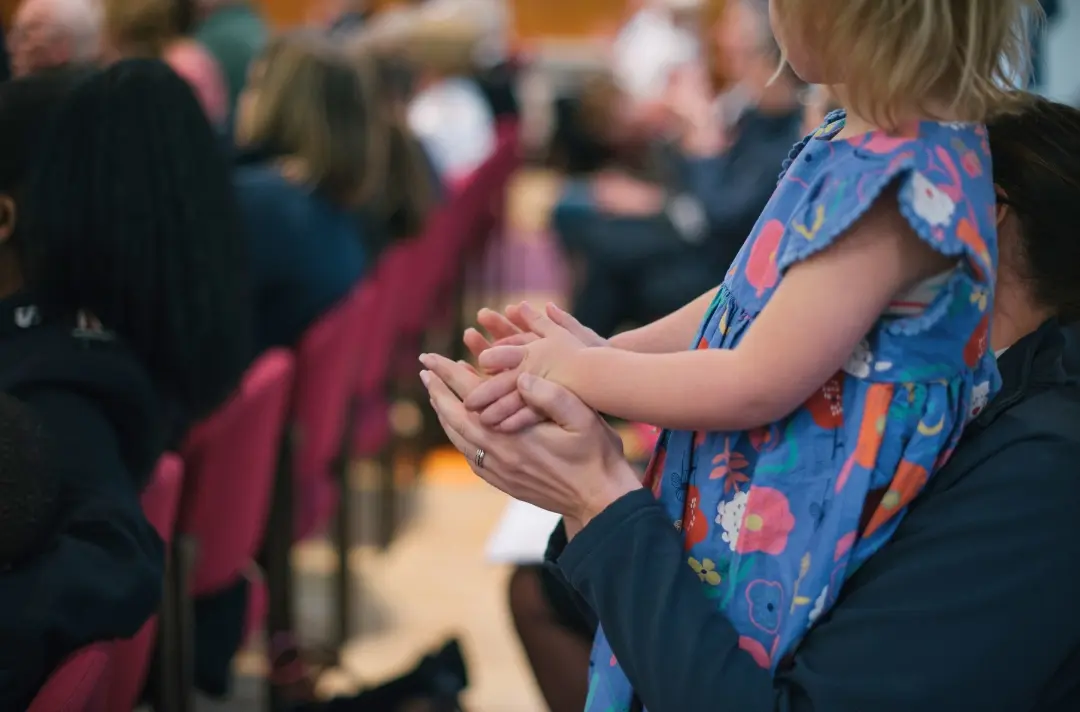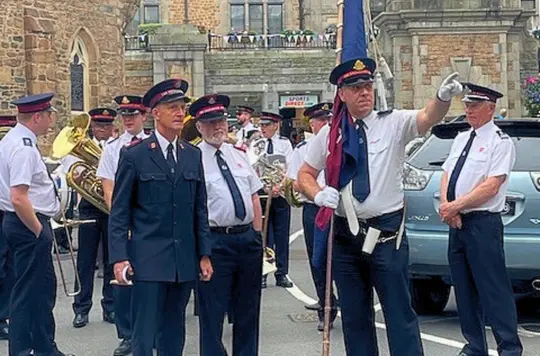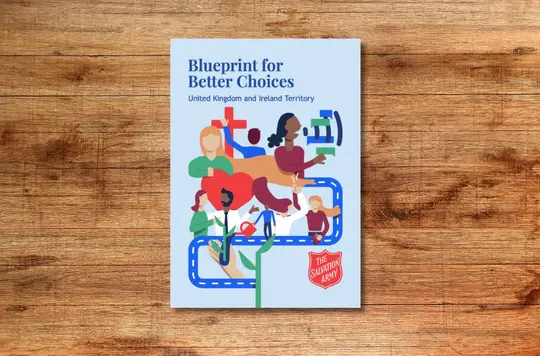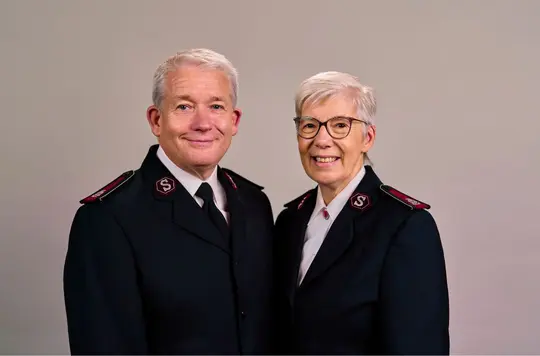1 November 2025
Spiritual life development: Let’s go deeper with God!
Major Gordon Cotterill

Secretary for Spiritual Life Development Major Gordon Cotterill talks about courageous discipleship and his new role.
Can you describe your role?
I’m officially responsible for spiritual life development in the UKI Territory, but I wouldn’t say that’s strictly true. We’re each responsible for our own spiritual life development. My role is to ensure that it’s at the forefront of everyone’s thinking. I can help create the right conditions where people do take responsibility and have that desire, and recognise that desire is God and comes from God.
How would you sum up spiritual life development?
Spiritual formation, discipleship, is important for us all. It forms us, renews us and transforms us to be more like Christ. It’s about creating the right conditions for growth. We can’t make the seeds grow, but we can create the right conditions.
It’s easy to go through your day-to-day and not stop and listen, to lose the ‘with God’ element. Spiritual discipline takes work – grace is opposed to earning, but not effort. We’re responsible for that effort, so that when we’re hit with the desire to go deeper with God, it’s not head knowledge but heart knowledge. That desire keeps us reaching for what we don’t understand.
How has your own understanding of spiritual formation grown?
My wife and I were commissioned in 1998. We went into ministry as corps officers at Poplar. I cut my teeth in mission there, not as a task to do, but by being God-sent people in a community. We went back to college, initially as practitioner tutors, then as spiritual programme directors, and I started to teach spiritual formation, which made sense of why I did mission and how it sustained that.
I found a good companion in Renovaré, which exposed me to voices such as Richard Foster, Dallas Willard, Henri Nouwen and Evelyn Underhill, and to ideas such as the ‘with God’ life, when we experience community with God, and our place within who God is. We recognise the importance of grace. We understand that the Kingdom is available here and now, and that shapes who we are. That started to shape me. I developed a curriculum for cadets based on the book Renovation of the Heart.
In recent years, we’ve been at Sutton Corps and have seen mission and spiritual formation connect. As I arrive in this role, I know that if we don’t have spiritual formation as well as mission, we burn out and forget who we are. It’s essential that the values of who we are are seen in the virtues we live out, individually and as a Movement.
What do you do day-to-day?
I’m leading spiritual formation groups with divisional leaders and thinking about how we get that to trickle down. I’m enjoying journeying with our territorial leaders in terms of what spiritual formation within the organisation looks like. I’ve been asked to set up a theological think tank, to ask what God is saying to us from a practical theological perspective.
I’m journeying with Major Gary Lacey and Lyndall Bywater from the UKI Boiler Room and territorial prayer network, which is gathering momentum. In the year ahead, I’m leading several retreats. I’m also working with William Booth College to see how their Retreat space can support people’s ongoing development. And lots more!
What excites you?
I’m excited about cultivating a culture where we’re energised by faith and seek what God wants. Because God has something new to say to us all the time. I sit on Cabinet and it’s great to see their process of discernment: after talking about an issue, we stop and ask what we’re hearing from God. It’s good to be part of that.
How does your role tie in with the Blueprint for Better Choices?
The ‘Blueprint’ isn’t a document: it’s a deep listening tool to change culture. It’s a directional tool, so we stay authentic to our calling. Deeper listening will result in deeper living, which is in line with the holiness tradition of who we are as a Movement.
Courageous discipleship is at the heart of the ‘Blueprint’. It’s number one in the five key areas – the other four flow from who we are. If we’re not energised by faith, we become merely a charity. And we’re more than a charity: that’s what God has called us to be. That’s not to denigrate who we are as a charity or how people respond to us as a charity, but we are who we are because of who we are with God. I think part of my role is to ensure we hold on to that.
Richard Rohr talks about John 1 and how ‘in the beginning was the Blueprint’ – the Word with a capital ‘W’. The essence of God was made flesh through Jesus. Later in the Bible, we come to the Word being in us, and us being in union with Christ. Ultimately, the essence of God has to be seen through us. There’s a temptation with any organisation, not least the Church, to focus on the form of who we are – but we need to start with the essence of who we are. If we get that order right, I think we’ll be OK.
How does Covenant Sunday play a part in our spiritual rhythm?
We want Covenant Sunday to be about creating a year-round culture. We all make a covenant when we say that we want to follow Jesus, be more like Jesus and have the Word of God dwell in us. It’s about ongoing discipleship. The fruit of the Spirit is the evidence of that. When the goodness of God, the glory of God that was veiled for Moses in Exodus 33 – ‘I will ... cover you with my hand until I have passed by’ (v22) – is revealed and reflected in us, that’s astonishing! That covenant is for everyone – and it’s not limited to one day of the year.
- Covenant Sunday will be on 11 January 2026, themed Break Ground, Bring Hope.
Discover more

Major Julian Watchorn reminds us that God equips us to go out and make disciples.

A territorial framework with focus areas and key questions to guide decision-making.

Blueprint for Better Choices: A message from the Territorial Leaders
